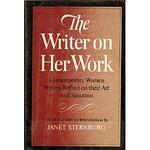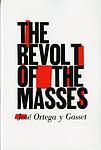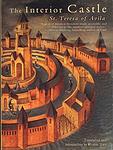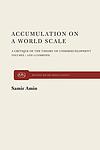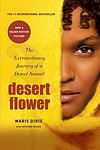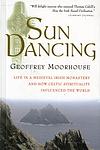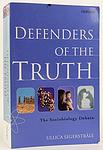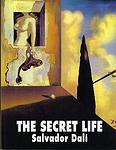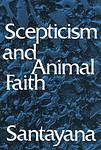The Greatest Spanish, Unknown "Nonfiction" Books of All Time
Click to learn how this list is calculated.
This list represents a comprehensive and trusted collection of the greatest books. Developed through a specialized algorithm, it brings together 300 'best of' book lists to form a definitive guide to the world's most acclaimed books. For those interested in how these books are chosen, additional details can be found on the rankings page.
Genres
Countries
Date Range
Reading Statistics
Click the button below to see how many of these books you've read!
Download
If you're interested in downloading this list as a CSV file for use in a spreadsheet application, you can easily do so by clicking the button below. Please note that to ensure a manageable file size and faster download, the CSV will include details for only the first 500 books.
Download-
1. Night by Elie Wiesel
This book is a memoir of the author's experiences during the Holocaust, specifically in the Auschwitz and Buchenwald concentration camps. The narrative focuses on the relationship between a father and son under the most extreme circumstances, the loss of faith in God, humanity, and in each other, and the horrifying reality of the systematic genocide of six million Jews during World War II. The book is a poignant and stark examination of the depths of human evil and the enduring power of hope and survival.
-
2. Mythology by Edith Hamilton
This book is a comprehensive guide to ancient Greek, Roman, and Norse mythologies, providing detailed accounts of various gods, goddesses, heroes, and other mythological creatures. It includes well-known stories like the Odyssey and the Iliad, along with lesser-known tales, and analyzes their significance in the cultures they originated from. The book also delves into the origins of these myths and their influence on later civilizations, offering readers a deep understanding of ancient cultures and their belief systems.
-
3. The Writer on Her Work by Janet Sternburg
"The Writer on Her Work" is a collection of essays by various female authors who discuss their experiences, challenges, and perspectives on writing. The book explores the complexities of being a woman in the literary world, shedding light on topics such as gender bias, the struggle for recognition, and the balance between personal life and professional aspirations. It provides a unique insight into the creative process, revealing how these women navigate their craft amidst societal expectations and personal obstacles.
-
4. The Revolt of the Masses by José Ortega y Gasset
"The Revolt of the Masses" is a philosophical work that discusses the rise of the "mass man" and the potential danger this presents to society. The author argues that the mass man, characterized by his lack of individuality and rejection of higher values, is a product of modern society and its emphasis on equality. He believes that this mass man, who is more concerned with his rights than his responsibilities, threatens to undermine the very foundations of society, leading to potential chaos and instability. The book serves as a warning and a call for a return to individual responsibility and respect for higher values.
-
5. The True History of the Conquest of New Spain by Bernal Díaz del Castillo
This book provides a first-hand account of the conquest of Mexico by the Spanish during the 16th century. It offers a detailed narrative of the events, battles, and interactions with native tribes, including the Aztecs. The author, a soldier in the Spanish army, provides a unique perspective on Hernán Cortés and his tactics, the politics of the time, and the cultural and religious practices of the indigenous people. The book also highlights the hardships, challenges, and ethical dilemmas faced by the conquistadors.
-
6. Journey to the Alcarria by Camilo José Cela
"Journey to the Alcarria" is a travel literature piece that takes the reader on a journey through the Alcarria region in Spain. The protagonist, a solitary traveler, explores the landscape, culture, and people of this region, offering detailed descriptions and observations. The narrative captures the essence of Spain's post-war period, revealing the harsh realities of rural life and the resilience of its people. The book is both a physical journey through a specific place and a metaphorical journey into the human condition.
-
7. Mortal y rosa by Francisco Umbral
"Mortal y Rosa" is a heartbreaking and poignant narrative about a father's grieving process after the loss of his young son. The novel is a profound exploration of death, love, and loss, with the author using beautiful, poetic language to express his deep sorrow and pain. It is not just a lamentation, but also a reflection on life, childhood, and the fleeting nature of time. The book is a testament to the power of words in expressing the inexpressible and a moving tribute to a life cut tragically short.
-
8. All But My Life by Gerda Weissmann Klein
"All But My Life" is a poignant memoir of a young woman's six-year ordeal as a victim of Nazi cruelty. The narrative follows her life from a peaceful, upper-middle-class childhood in Bielitz, Poland, through her horrifying experiences and loss during the Holocaust, to her miraculous survival and marriage to an American soldier. It is a story of courage, resilience, and the enduring power of hope.
-
9. The Interior Castle by Teresa of Avila
"The Interior Castle" is a spiritual guide that uses the metaphor of a castle with seven chambers, or 'mansions', to explain the journey of faith. The author describes each mansion as a step closer to God, with the innermost chamber representing union with the divine. The book explores various spiritual concepts such as self-knowledge, detachment, humility, and divine love, providing a roadmap for personal transformation and spiritual growth.
-
10. The Poems Of St. John Of The Cross by John of the Cross
The book is a collection of mystical poetry written by a 16th-century Spanish monk who explores the profound depths of Christian spirituality and the soul's journey towards union with God. Through his lyrical verses, the author delves into themes of love, suffering, and the quest for spiritual purification and enlightenment. His poems are celebrated for their rich imagery and emotional intensity, reflecting his own experiences and the contemplative life. The work is considered a pinnacle of Spanish literature and a significant contribution to Christian mysticism, offering readers a path to understanding the complexities of the divine and the inner workings of the soul.
-
11. Greguerias by Ramón Gómez de la Serna
The book is a collection of witty, poetic, and often surreal aphorisms and reflections that blend humor, irony, and keen observation to capture the essence of everyday objects and experiences in a unique and thought-provoking way. These brief, imaginative musings offer a window into the author's playful mind, as he transforms the mundane into the extraordinary with his inventive use of language and metaphor. The work is a testament to the author's innovative spirit and his ability to see the world through a lens of whimsical creativity.
-
12. Power Politics by Martin Wright
"Power Politics" is a comprehensive analysis of the dynamics of power in international relations. The book delves into the ways in which states interact with one another, the influence of power on these interactions, and the role of both military and economic strength in determining political outcomes. It examines the balance of power theory, the impact of alliances, and the strategies nations employ to enhance their influence on the global stage. The author also explores the implications of power politics for world peace and the potential for cooperation among nations in an environment often characterized by competition and conflict.
-
13. E=Mc2 by David Bodanis
The book provides a layperson-friendly explanation of the world's most famous equation, delving into the history, science, and people behind its development. It explores the biographies of the scientists who contributed to our understanding of energy and mass, including the equation's originator, and the practical and philosophical implications of the equation's assertion that energy and mass are interchangeable. The narrative also discusses the equation's role in the development of atomic energy and its impact on modern physics, offering an accessible journey through the annals of scientific thought and the revolutionizing discoveries that shape our understanding of the universe.
-
14. Accumulation On A World Scale by Samir Amin
"Accumulation On A World Scale" by Samir Amin is a thought-provoking analysis of the global capitalist system and the dynamics of accumulation. Amin explores the historical development of capitalism, its inherent contradictions, and the ways in which it perpetuates inequality and exploitation on a global scale. He argues that the capitalist system is fundamentally flawed and unsustainable, offering alternative perspectives on economic development and proposing radical changes to create a more equitable and just world.
-
15. An Imagined World by June Goodfield
"An Imagined World" is a poignant exploration of the human condition, set against the backdrop of World War II. The narrative delves into the life of a young woman who, amidst the chaos and destruction of the war, finds herself in a remote English village. There, she grapples with the complexities of love, loss, and the search for personal identity. As she interacts with the villagers and refugees who have also sought sanctuary, the protagonist confronts the harsh realities of the world outside while navigating the intricate web of human relationships and the enduring hope for a better future. The book is a testament to the resilience of the human spirit and the power of imagination as a source of comfort and escape in times of turmoil.
-
16. The Padārthatattvanirūpaṇam Of Raghunātha śiromaṇi by Karl H. Potter
"The Padārthatattvanirūpaṇam of Raghunātha Śiromaṇi" is a critical examination and translation of a seminal work in Indian philosophy by Raghunātha Śiromaṇi, who was a prominent figure in the Navya-Nyāya school. This book, authored by Karl H. Potter, provides an in-depth analysis of Raghunātha Śiromaṇi's thoughts on metaphysics, focusing on the nature of reality and categorization of existence. Potter's work not only translates the original text but also contextualizes it within both historical and philosophical frameworks, offering insights into the development of Indian philosophical thought and its intricate argumentative techniques.
-
17. Averroes by George F. Hourani
This book provides a comprehensive study of Averroes, a seminal Islamic philosopher from the medieval period, known for his profound influence on both the Islamic and Christian intellectual worlds. The text delves into Averroes' life, his philosophical and theological ideas, and particularly his commentaries on Aristotle, which played a crucial role in shaping medieval scholasticism. The author explores how Averroes' attempts to harmonize philosophy with Islamic theology sparked significant debates and how his ideas were received, critiqued, and integrated into European thought, thereby leaving a lasting legacy on the development of Western philosophy and science.
-
18. The Samaritan Treasure by Marianne Luban
"The Samaritan Treasure" is an intriguing historical novel that delves into the ancient world, weaving a tale of mystery and adventure around the biblical account of the Good Samaritan. The narrative follows an archaeologist who stumbles upon a clue to the legendary treasure of the Samaritans, leading to a thrilling quest that spans continents and centuries. As the protagonist deciphers ancient texts and navigates dangerous liaisons, the story explores themes of faith, cultural heritage, and the enduring allure of hidden riches. The novel is a blend of meticulous historical research and imaginative storytelling, offering readers a captivating journey through time and the human spirit's quest for discovery.
-
19. Desert Flower by Waris Dirie, Cathleen Miller
"Desert Flower" is a powerful autobiography that tells the story of a girl born into a nomadic tribe in the Somali desert. The girl, subjected to the brutal tradition of female genital mutilation at a young age, escapes an arranged marriage at 13 and ends up in London, where she works various jobs before being discovered as a model. Her rise to fame in the fashion industry is juxtaposed with her personal journey to raise awareness about the harmful cultural practice she endured and advocate for its eradication.
-
20. The Man Who Loved Only Numbers by Paul Hoffman
"The Man Who Loved Only Numbers" is a captivating biography that delves into the life of a brilliant mathematician. From his early years as a child prodigy to his groundbreaking contributions in number theory, the book explores the eccentricities and obsessions that consumed his life. With a unique blend of mathematical concepts and personal anecdotes, the biography paints a vivid portrait of a man who was truly devoted to the world of numbers.
-
21. Sun Dancing by Geoffrey Moorhouse
"Sun Dancing" presents a vivid tapestry of medieval Irish monasticism, combining historical facts with imaginative storytelling. The book delves into the austere and spiritually intense lives of monks on Skellig Michael, a remote island off the Irish coast, during the early centuries of Christianity in Ireland. Through a blend of narrative and analysis, the text explores the harsh realities of monastic life, the cultural and religious contributions of these communities, and the broader context of Irish and European history during this period. The author weaves together the daily routines, spiritual practices, and legendary tales of these monks, providing a window into a world where faith and endurance converge amidst the isolation of the Atlantic Ocean.
-
22. Why Not Me? by Wendy L. Bovard
"Why Not Me?" is a poignant memoir that delves into the author's personal journey through adversity and resilience. It explores the challenges faced when life takes unexpected turns, such as dealing with illness, loss, and the search for self-identity. The narrative is a testament to the human spirit's capacity to overcome obstacles and find meaning in the face of hardship. With honesty and vulnerability, the author shares her experiences, offering insights and inspiration to others who may be navigating their own paths through difficult times, ultimately asking the universal question of why some are chosen to endure certain trials and how they can emerge stronger.
-
23. Defenders Of The Truth by Ullica Segerstrale
This book provides a comprehensive examination of the sociobiology debate, a contentious discussion that emerged in the 1970s and 1980s regarding the application of evolutionary theory to human behavior. It delves into the intellectual clash between prominent scientists and scholars, exploring the ideological, academic, and political tensions that fueled the debate. The narrative not only charts the historical development and key arguments of both sides but also scrutinizes the broader implications of this debate for the scientific community and society at large. Through detailed analysis and interviews, the work sheds light on the complexities of scientific discourse, the role of science in society, and the intricate interplay between scientific inquiry and ethical considerations.
-
24. The Secret Life Of Salvador Dali by Salvador Dali
"The Secret Life of Salvador Dalí" is an autobiography that offers an intriguing glimpse into the mind and life of the renowned surrealist artist. Written by Dalí himself, the book explores his early years, his rise to fame, and the development of his eccentric and flamboyant persona. Through vivid, often bizarre anecdotes and reflections, Dalí shares his thoughts on art, his obsessions, and his relationships with other famous figures of the 20th century. The narrative is characterized by its imaginative prose and the artist’s characteristic blend of arrogance and insight, providing a unique perspective on his creative genius and complex personality.
-
25. Scepticism and Animal Faith by George Santayana
"Scepticism and Animal Faith" is a philosophical work that presents the idea that knowledge is not found through evidence or reason, but through animal faith, a term referring to instinctive beliefs. The book delves into the nature of perception and consciousness, and argues that all human knowledge is grounded in unproven preconceptions. The author suggests that to understand the world, humans must first acknowledge their own preconceived notions and biases, and then attempt to understand the world through a lens of skepticism.
Reading Statistics
Click the button below to see how many of these books you've read!
Download
If you're interested in downloading this list as a CSV file for use in a spreadsheet application, you can easily do so by clicking the button below. Please note that to ensure a manageable file size and faster download, the CSV will include details for only the first 500 books.
Download

